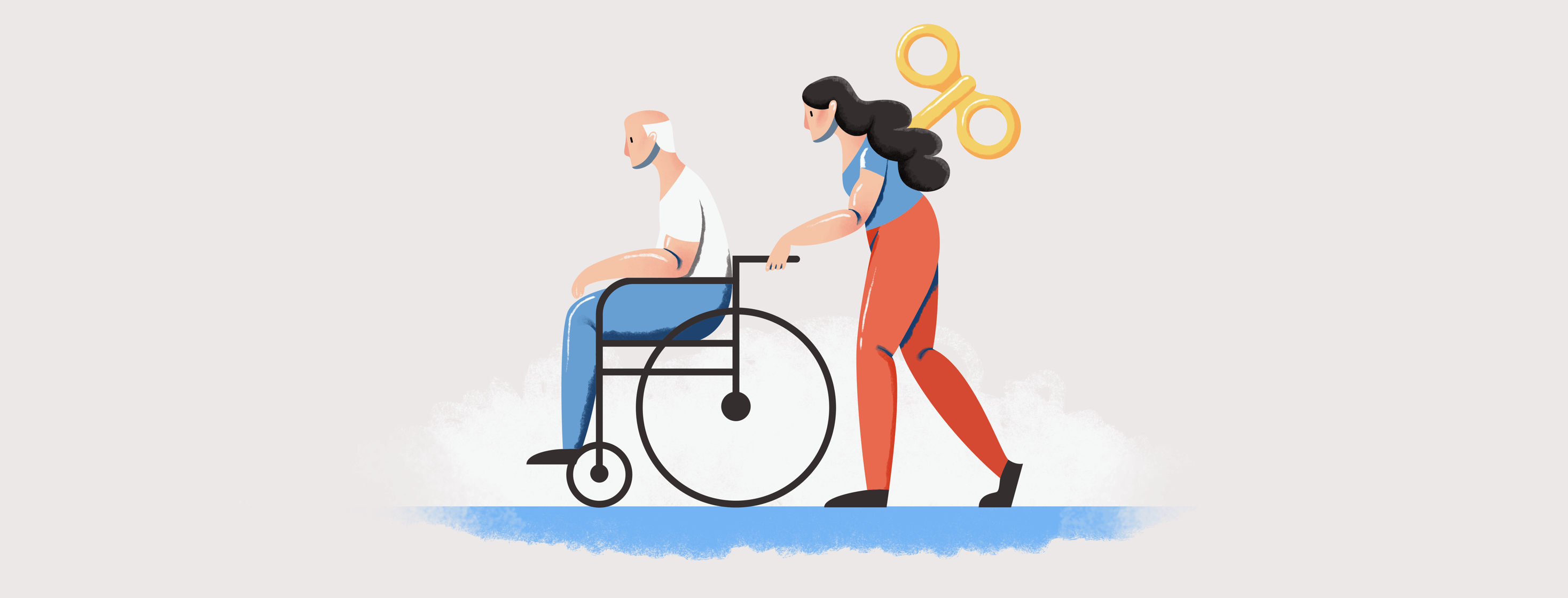How to Be an Empowered (and Empowering) Caregiver to A Stage IV Patient
Acknowledging how hard it is
I was the caregiver to my first husband, Ahmad Khoshroo, during his 11 months facing Stage IV bladder cancer. It was the hardest thing I have ever done. Yes, it was rewarding and meaningful. But ultimately, it was just very difficult – emotionally and physically. I think it is one of the hardest things we can face in life in an otherwise comfortable country (with our basic needs met).
We were thrown in suddenly
Everyone’s experience is different. But we were thrown in suddenly. And everything kept changing frequently for us. This left us with a feeling of constantly treading water, trying to keep up. If you find yourself in a similar situation, acknowledge to others just how hard it is. Ask for help (easier said than done). Seek out an oncology social worker or counselor. Lean heavily on your support system. We all plan for rainy days. Recognize that it is raining now.
Life happened while we were making other plans
Ahmad was diagnosed with metastatic bladder cancer in May 2013. In June, I took (what I had planned to be) a two-month leave from my job. The idea was that we would spend time together, doing fun things in between the medical appointments. Maybe we would take day or weekend trips. This was the plan.
But life (as it often does) had other plans for us. His tumor grew rapidly and he quickly had pain that required a complicated narcotics regimen to manage. Finding the right combination of pain medicines became our nearly obsessive quest. Too much and he was groggy and unable to do much other than sleep. Too little and the pain would become unbearable. Getting the pain management right took an extraordinary amount of time. It is hard to understand how much time cancer takes up – especially one that is deemed unlikely to be cured. You invest so much energy in researching treatments and doctors, in helping the patient, in keeping everyone updated. It was the hardest job I’ve ever had.
How to practically support the patient and yourself
Your self-care is critical. People will tell you this over and over again. You already know it. But you must live it. Enough sleep, good nutrition, exercise, mental decompression (yoga, walks, whatever works for you), leaning on your support system, getting help with mundane tasks. These things will help keep you going. Please abide by them. You cannot help your patient if you yourself are sick or exhausted. Put your own oxygen mask on first.
Calibrate yourself to your patient
Let him or her talk about cancer if he or she wants to or let him or her talk about everything else if that’s what he or she wants. Make both your lives easier by being prepared at each doctor’s appointment (assuming you attend the appointments, too). Make a list of questions (together, ideally) and write them down. Bring a notebook or laptop to take notes during the appointment. Ask the doctor if you can record the appointment. There is an enormous amount of information that comes at you quickly. You might think you will remember it all but, trust me, you will not. And the more time that passes, the more doctors you see, the more complex the treatment history becomes, you will need good notes.

Join the conversation